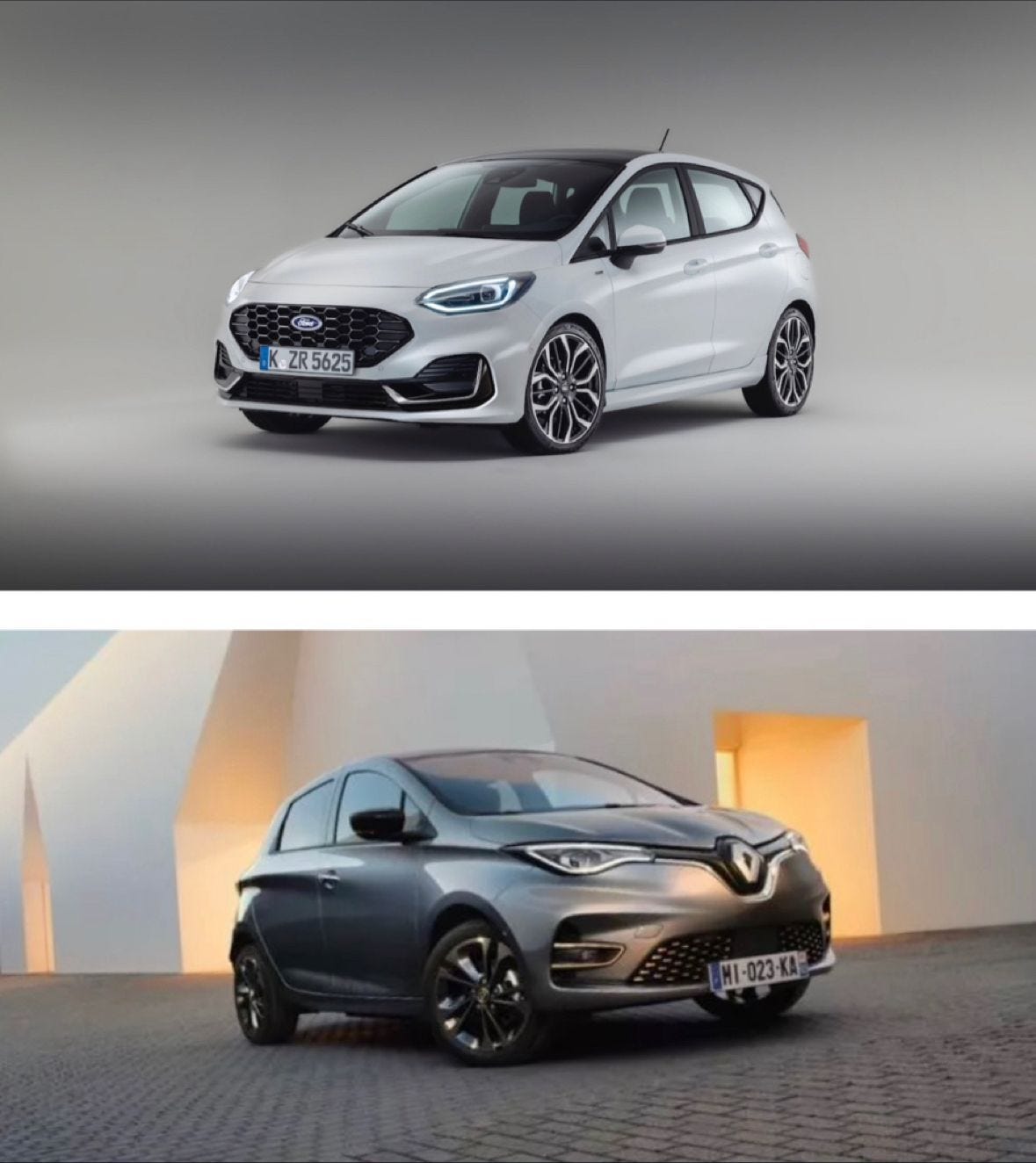Ford Fiesta Vs Electric Renault Zoe: Which is more environmentally friendly?
As the world embraces the need for sustainable transportation, it's essential to assess the impact of different vehicle options.
As the world embraces the need for sustainable transportation, it's essential to assess the impact of different vehicle options. Today, let's explore the differences between the petrol-powered Ford Fiesta and the electric Renault Zoe, shedding light on which option is more environmentally friendly.
Petrol Ford Fiesta
The Ford Fiesta is a popular compact car known for its reliability and performance. However, it relies on a conventional internal combustion engine, which has certain implications for the environment. Let's delve into the stats:
1️⃣ Fuel Efficiency:
The petrol-powered Ford Fiesta achieves an average fuel efficiency of around 35 miles per gallon (mpg) in combined city and highway driving conditions. This estimate varies depending on the engine size and driving style, but it provides a general benchmark for comparison.
2️⃣ Carbon Emissions:
Based on the average fuel efficiency, the Ford Fiesta emits approximately 159 grams of carbon dioxide (CO2) per kilometre driven. These emissions contribute to air pollution and global warming, impacting our planet's health.
Electric Renault Zoe
The Renault Zoe is an all-electric vehicle designed to reduce environmental impact and foster sustainability. Let's examine its eco-friendly characteristics:
1️⃣ Energy Efficiency:
The Renault Zoe boasts an impressive energy efficiency, achieving an average of 200 miles on a single charge. It offers zero tailpipe emissions, meaning no direct CO2 emissions during operation.
2️⃣ Renewable Energy Potential:
When charging an electric vehicle like the Zoe, the source of electricity plays a crucial role in determining its overall environmental impact. Switching to renewable energy sources, such as solar or wind power, further enhances the eco-friendly nature of electric vehicles.
Environmental Impact Comparison:
To determine which option is more environmentally friendly, we must consider the lifecycle analysis, accounting for factors such as production, fuel extraction, vehicle usage, and end-of-life disposal. A comprehensive study by the Union of Concerned Scientists found that electric vehicles produce significantly fewer emissions over their lifetime compared to conventional gasoline-powered vehicles.
🔗 Source: Union of Concerned Scientists Report on Electric Vehicles
In conclusion, considering the statistics and comprehensive lifecycle analysis, it's evident that the electric Renault Zoe emerges as the more environmentally friendly choice. With zero tailpipe emissions, high energy efficiency, and the potential for renewable energy usage, the Zoe embodies sustainable transportation, reducing our carbon footprint and protecting the planet for future generations. Let's drive change together!





🤣🤣🤣🤣🤣🤣🤣🤣🤣🤣🤣